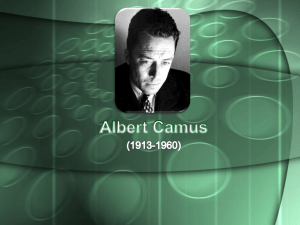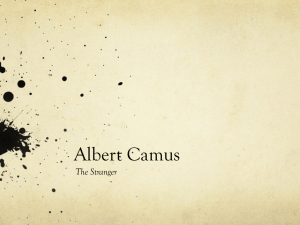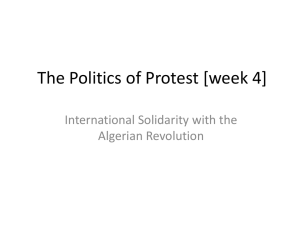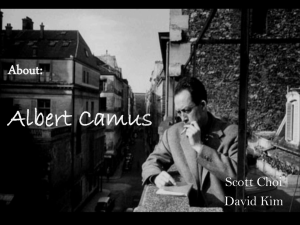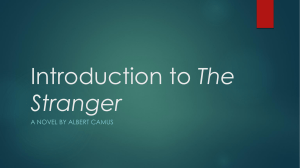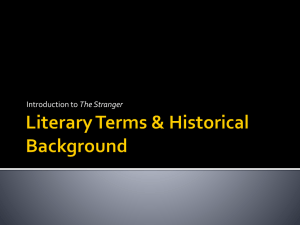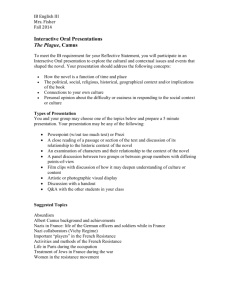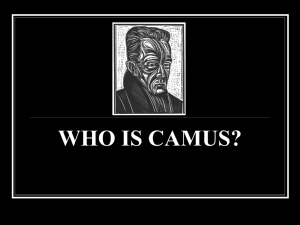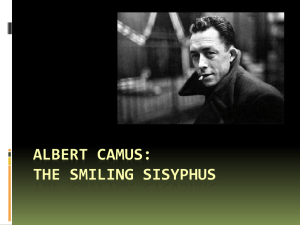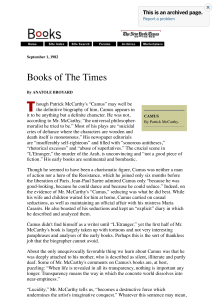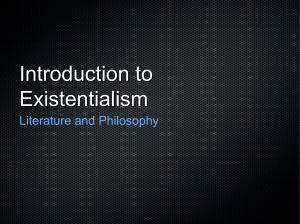power Point INt 3111 politics and culture in literature
advertisement
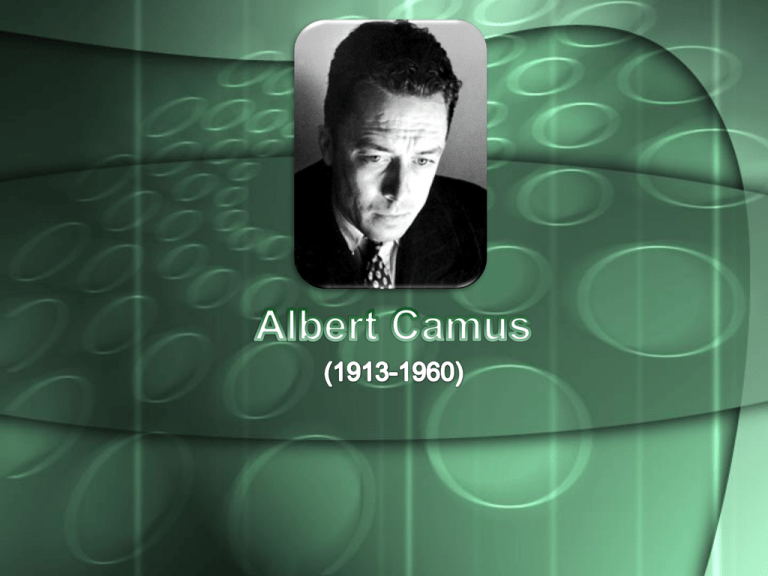
• Albert Camus was born In Mondovi, Algeria on November 7,1913 • Lived with Gandmother in the Belcourt section of ther Algiers, near the Arab Quarter of the city, while living in poverty • In 1930 suffered from severe attacks caused by tuberculosis • Was accepted into The univeristy of Algiers where he studied Philosophy. • 1937 Published First book a collection of Essays “L'Envers Et l‘Endroit” • 1934-1935 was a member of the algerian communist party • With left wing intellectuals founded Theatre De l'quipe. which aimed to bring plays to working-class audiences. – Before outbreak of world war II was a a newspaper journalist for Alger-Républicain – Published the “Stranger” in 1942. – “The Myth of Sisyphus” published in 1942 – 1944 wife Francine Faure gave birth to two twins. – L'Homme révolté (1951, The Rebel) – Wrote for L’ express daily newspaper covering the Algerian war – 1957 awarded Nobel prize in Literature for his essay Reflexions sur la Guillotine – 1960 died in car accident near Sens, France with publisher Micheal GalliardThe Novel First man found in Possession. The Nobel Prize in Literature 1957 was awarded to Albert Camus "for his important literary production, which with clear-sighted earnestness illuminates the problems of the human conscience in our times" “Refexions Sur la Guillotine” Role in Culture and Politics. • Albert Camus greatly influenced the politics and culture of his time. He was extremely influenced by the severe harnshness and the atmosphere of war. He often accepted the terms of being called a humanist. Camus represents the philosophical movement called existentialism, which characterizes man's situation in the universe by denying it all personal significance, seeing in it only absurdity. Absurdity occurs often in the works of Camus. Albert Camus also, uses the idea that it is impossible to make rational sense of ones experience and human life is made meaningless by mortality. Camus explores many different themes throughout his works and even his plays. He sees revolt as a peaceful revolutionary process that requires leadership, but not violence. He has wriiten news and journals to the people during the years of the war. At this time he was a self proclaimed pacifist writing openly against war in Europe. He was even asked to leave Algeria in march 1940 having been declared a threat to national security. Camus explores the themes such as alienation, sucicide, rebellion, guilt and innocence throughout his works. These Themes are repeated within all of his writings and he uses these to help explain human rights. Interpretations of “The Guest” by Peter Roberts • A simple narrative, yet rich with symbolism and deep philosophical reflection. • His portrayals of both characters, Daru and “The Guest” (Arabic Prisoner) • What’s the text’s significance? • Althusser’s (A French Marxist philosopher)Ideologies of the state which contains two apparatuses: Repressive State apparatus (RSA), and Ideological State Apparatus (ISA) • Desert People’s code of Hospitality: Daru’s way of life • The Prisoner’s bligation to imprisonment
